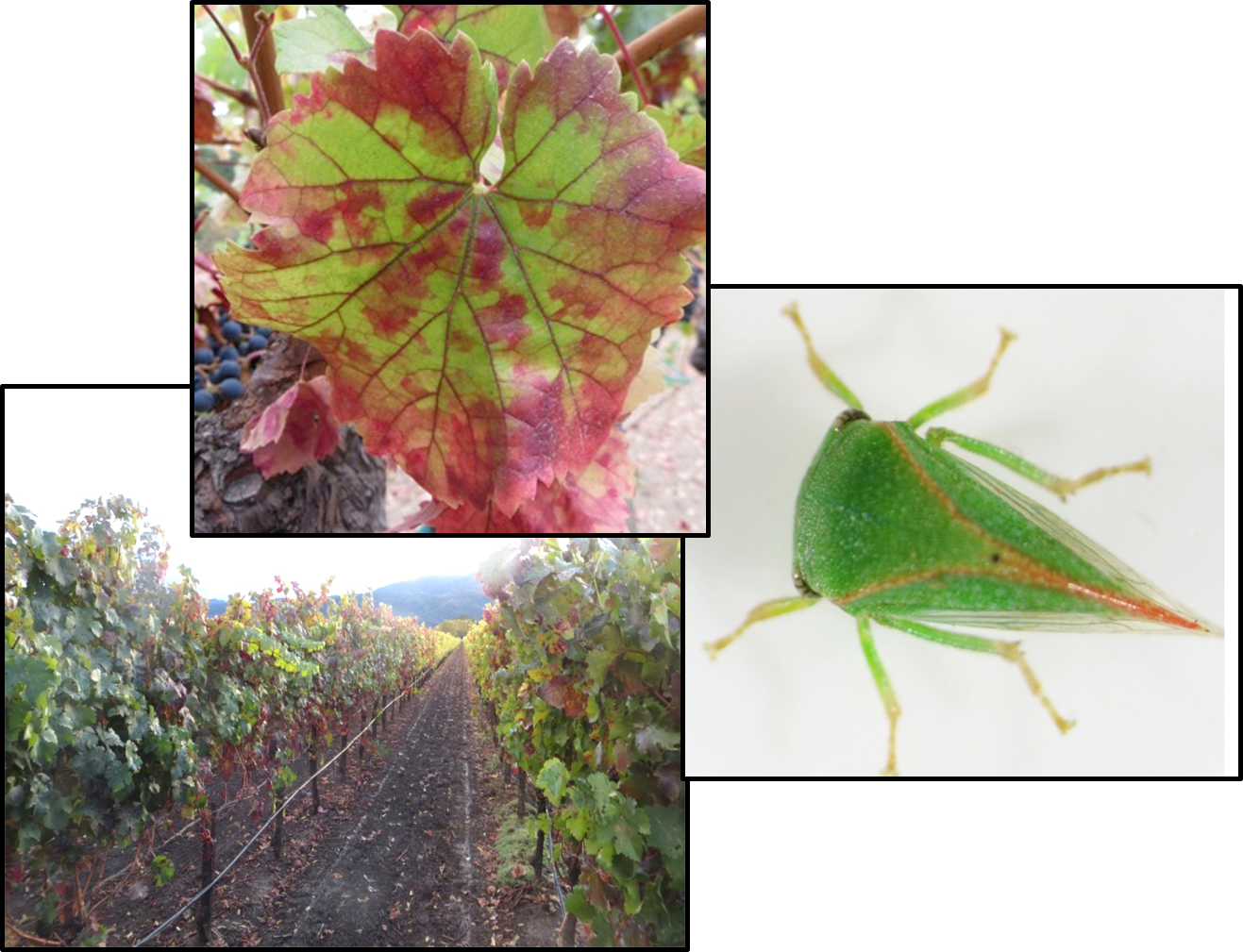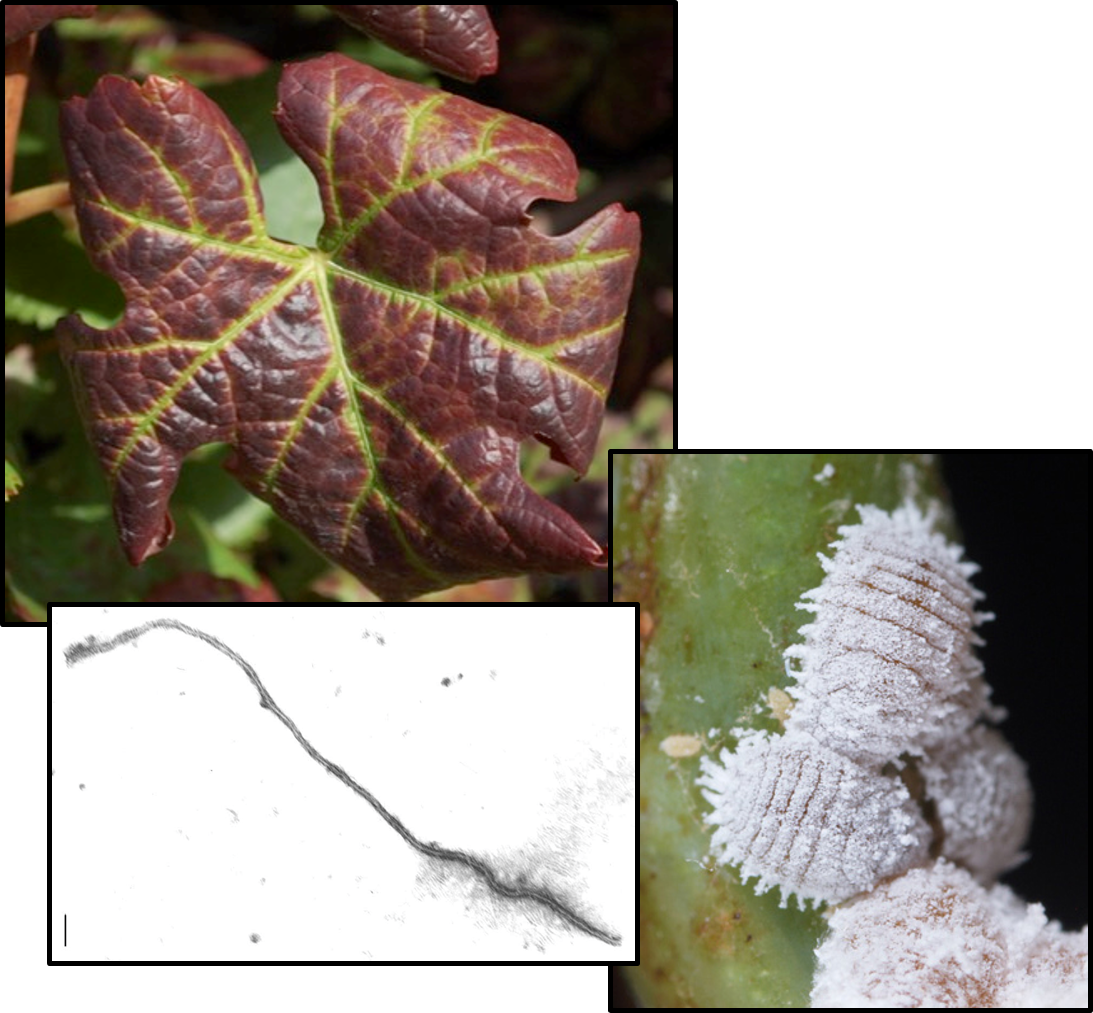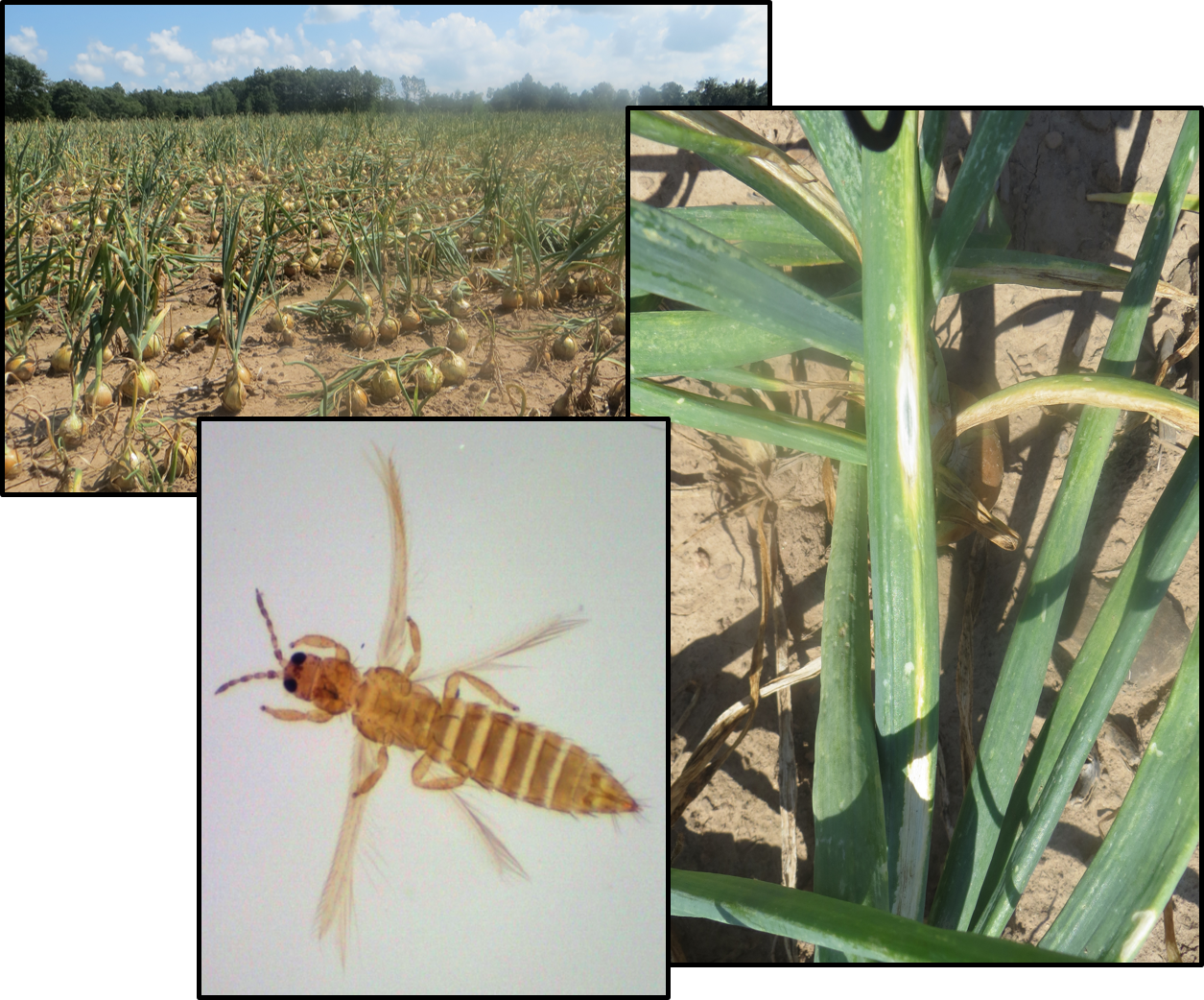
Research
The Fuchs lab program emphasizes translational research on virus diseases of fruit and vegetable crops. Primary goals are to (i) investigate the nature of virus populations to study their genetic variability and advance our understanding of disease spread, (ii) provide insights into the interface between viruses and their vectors and hosts to advance our understanding of their molecular connectivity for pathogenicity and spread, and (iii) explore innovative approaches for crop improvement based on agriculture biotechnology to provide new opportunities for effective viral disease management strategies.

Grapevine fanleaf virus (GFLV)
GFLV is one of the most devastating viruses of grapevine worldwide. Research in the Fuchs lab is currently focusing on host-pathogen interactions and the development of resistant grapevine rootstocks using RNA interference.

Grapevine red blotch virus (GRBV)
GRBV was discovered in 2011 and has since been detected in numerous vineyards throughout the United States. Research in the Fuchs lab is focused on the epidemiology and ecology of red blotch in efforts to improve management.

Grapevine leafroll-associated viruses (GLRaVs)
GLRaVs are causing serious economic losses. Research in the Fuchs lab is focused on options to reduce the impact of these viruses in diseased vineyards and to engineer resistance to GLRaV-3 and to the grape mealybug, its most prevalent vector, using RNA interference.

Iris yellow spot virus (IYSV)
IYSV is a major threat to the bulb onion industry. Current efforts in the Fuchs lab target the ecology of IYSV in onion ecosystems to advance our understanding of secondary spread.







